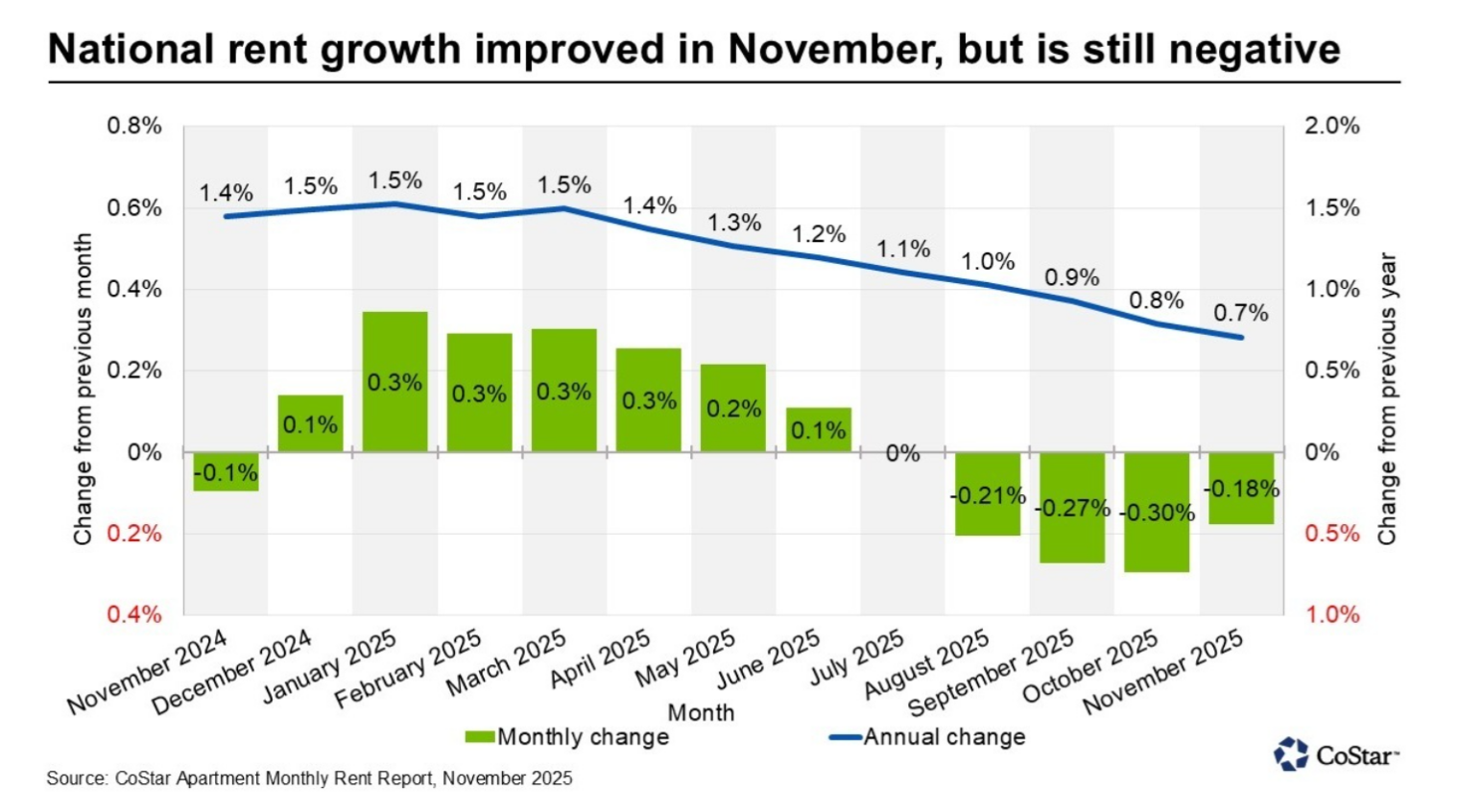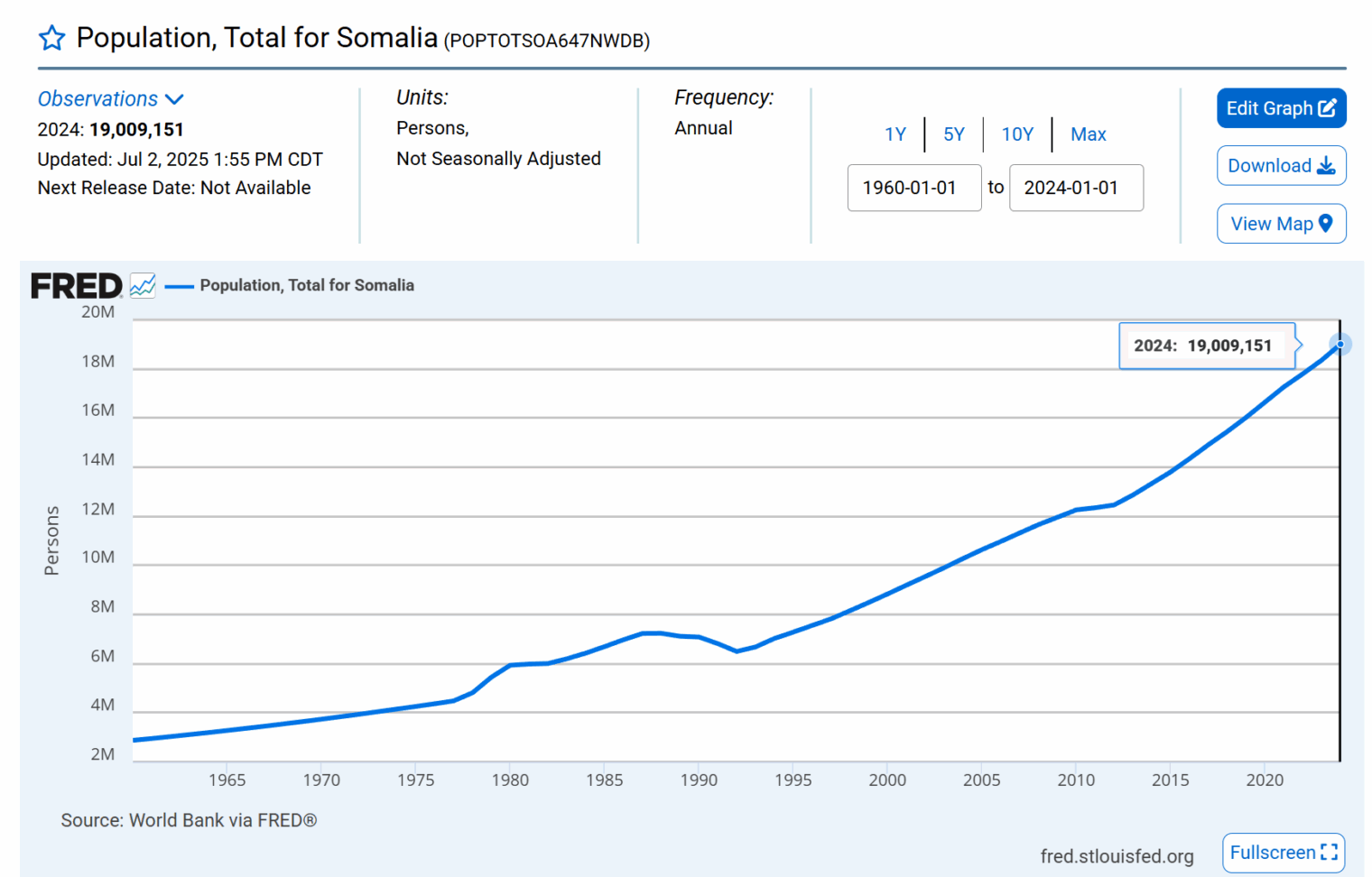Donald Trump made the news recently for ending the Temporary Protected Status for Somali migrants who live in Minnesota. USA Today (Reuters):
U.S. President Donald Trump said on Nov. 21 that he was immediately terminating the temporary deportation protections for Somalis living in Minnesota.
Trump’s move to remove protections for Somalis comes after years of targeting Somali immigrants in every campaign cycle in Minnesota since he first ran for president in 2016. The state has become a destination for Somali immigrants in recent decades dating back to the 1990s.
In the decades since the first wave of Somali migrants came to the state, Somalis have established flourishing cultural and business districts, sent their children to its colleges and universities, and elected leaders from their own communities to Minnesota’s city councils, mayorships, legislature and to the U.S. Congress.
(It’s an established journalistic fact that the districts are “flourishing”; household income for a typical Somali family in Minnesota was less than 200% of the poverty line (source), i.e., 2/3rds of Somalis in Minnesota were eligible for SNAP/EBT, Medicaid, public housing, and Obamaphone and, therefore, “flourishing” means “lifestyle funded by taxpayers”)
This will turn out to be just a few hundred enrichers, a fraction of 705 total (see below for nationwide data).
How many Somalis are there without Temporary Protected Status, i.e., Unprotected Somalis? About 20 million (i.e., the U.S. government takes the official position that Somalia is too dangerous for a human to inhabit and, at the same time, Somalia has one of the world’s highest rates of human population growth).
If we’re against inequality, how is it reasonable to anoint 705 Somalis as being worthy of protection and at the same time say that 20 million Somalis are not worthy of protection? If Somalia is too dangerous to inhabit, thus justifying TPS for some, why shouldn’t anyone currently in Somalia have the right to go to Aden Adde International Airport in Mogadishu and get on Turkish Airlines to take up taxpayer-funded residence in the Mamdani Caliphate? Here are some $2,855 flights from Mogadishu to JFK for Christmas Day (economy is available for $1,359, but presumably the U.S. taxpayer can afford to welcome Somalis in comfort and style):
Doesn’t a hatred for inequality require that we treat all Somalis equally, without preference for Somalis who are already here in the U.S.? Same question regarding other countries. Here’s March 31, 2025 data:
What’s special about 140 Lebanese in the U.S. that entitles them to TPS while 6 million Lebanese in Lebanon get nothing? Humans cannot survive in Cameroon, which is why the population has grown from 5 million in the 1960s to 30 million today (6X), so it makes sense that 4,920 Cameroonians are entitled to TPS. But why aren’t the remaining 30 million Cameroonians entitled to move to the US and enjoy TPS?
Full post, including comments 















